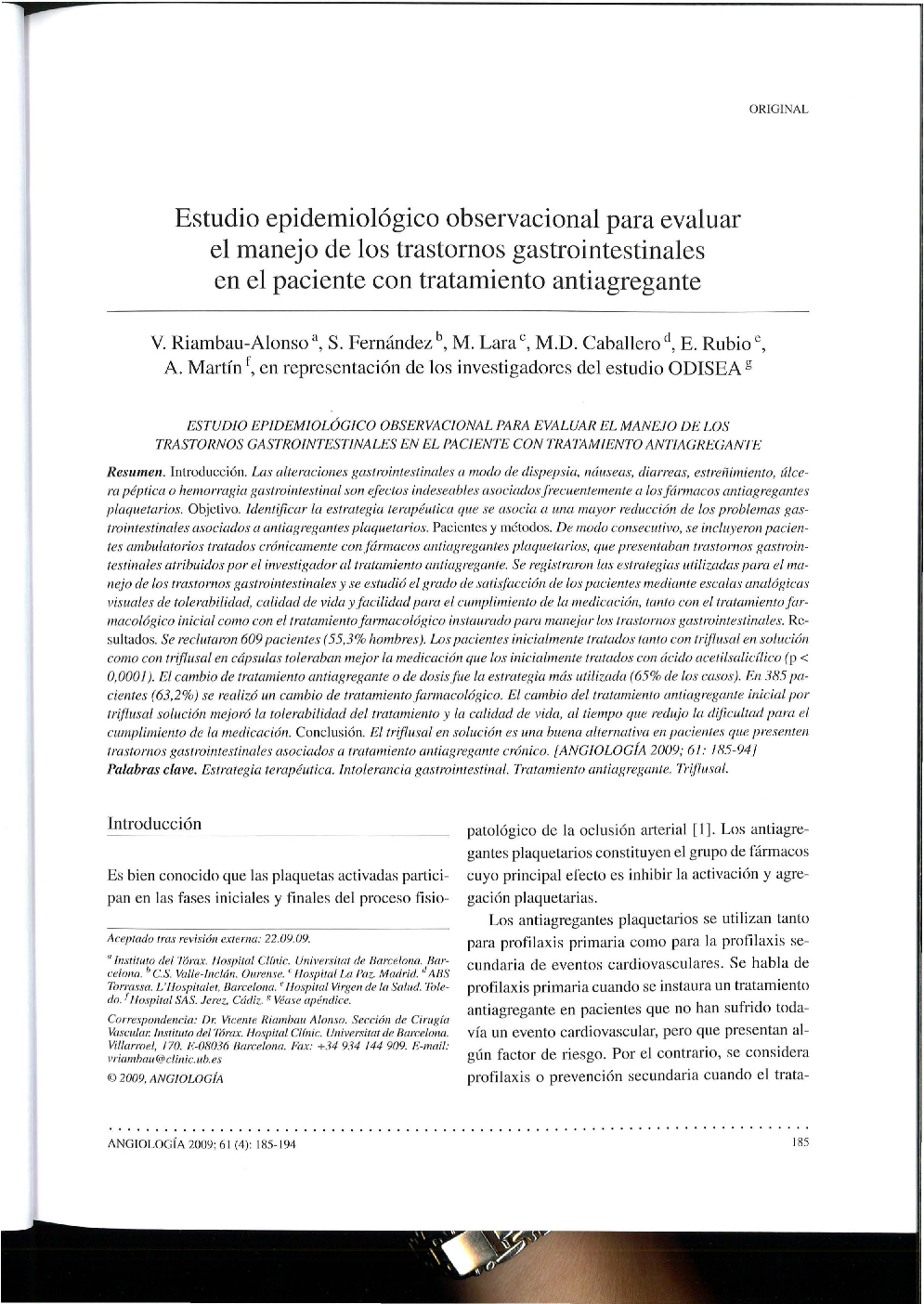| Article ID | Journal | Published Year | Pages | File Type |
|---|---|---|---|---|
| 2867964 | Angiología | 2009 | 10 Pages |
Abstract
Introduction. Gastrointestinal disorders like dyspepsia, nausea, diarrhoea, constipation, peptic ulcers or gastrointestinal haemorrhages are undesirable side-effects that are qften associated to antiplatelet therapy. Aim. To identify the therapeutic strategy that leads to the greatest reduction in the number of gastrointestinal problems associated with antiplatelet drugs. Patients and methods. Our sample consisted of consecutive outpatients undergoing chronic antiplatelet therapy who presented gastrointestinal disorders that the researcher attributed to the antiplatelet therapy. The strategies used this to manage the gastrointestinal disorders were recorded and the degree of patients' satisfaction was studied by means of visual analogical scales for measuring tolerability, quality of life and ease of treatment compliance, for both the initial pharmacological treatment and pharmacological treatment that was established to manage the gastrointestinal disorders. Results. The sample was made up of 609 patients (55.3% nwles). Patients who were initially treated with triflusal solution and with triflusal capsules tolerated medication better than those who were initially treated with acetylsalicylic acid (p < 0.0001). Changing the antiplateiet therapy or the doses was the most wideiy used strategy (65% of cases). Pharmacological treatment was changed in 385 patients (63.2%). Changing the initial antiplateiet therapy for triflusal solution improved treatment tolerability and quality of life, while also lessening the difficulties involved in achieving medication compliance. Conclusions. Triflusal solution is a good alternative in patients who present gastrointestinal disorders associated to chronic antiplateiet therapy. [ANGIOLOGÍA 2009; 61: 185-94]
Related Topics
Health Sciences
Medicine and Dentistry
Cardiology and Cardiovascular Medicine
Authors
V. Riambau-Alonso, S. Fernández, M. Lara, M.D. Caballero, E. Rubio, A. MartÃn, en representación de los investigadores del estudio ODISEA en representación de los investigadores del estudio ODISEA,
